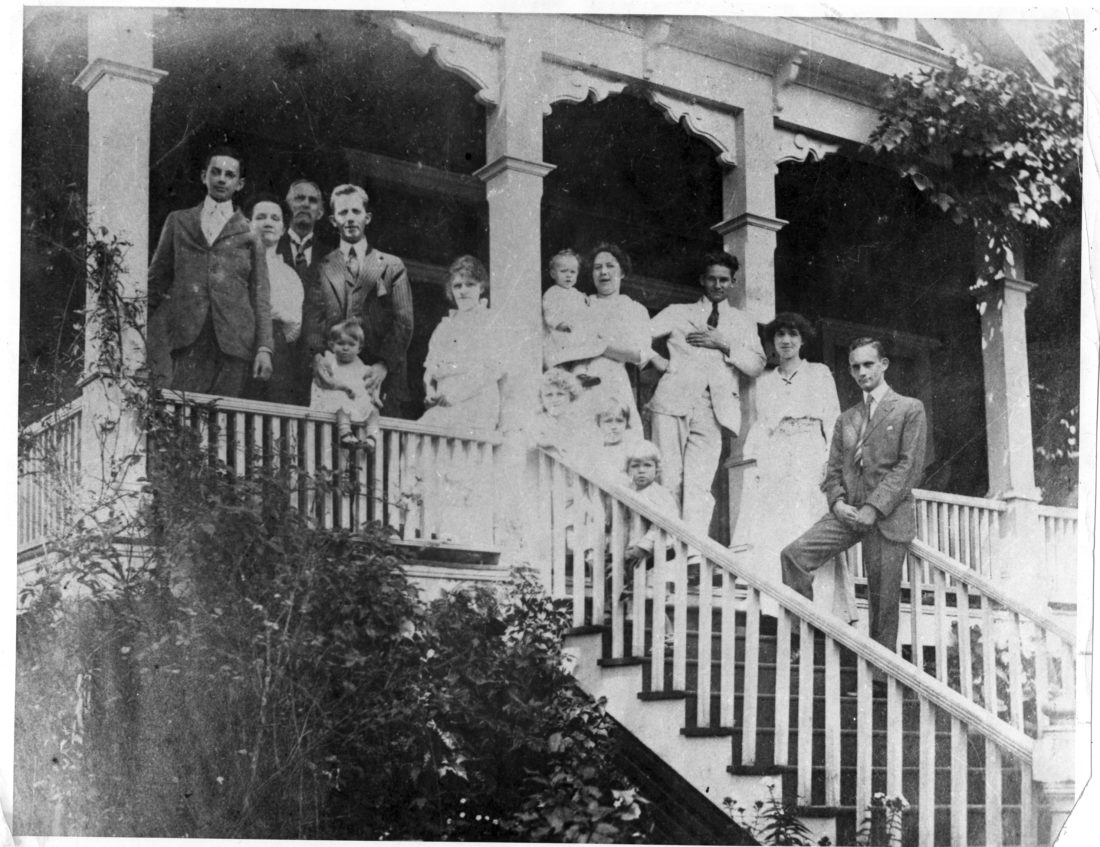Influenza led to 127 deaths in Asheville between October 1918 and February 1919. Among the dead was Benjamin “Ben” Harrison Wolfe, who died Oct. 19, 1918. The 25-year-old newspaperman perished inside his mother’s boardinghouse on Spruce Street in downtown Asheville, a week shy of his 26th birthday. Among those present during his demise was Wolfe’s younger brother and future author Thomas.
The loss of Ben haunted Thomas throughout his life. In a May 1923 letter to his mother, Julia, the then 22-year-old aspiring writer reflected on the devastation he and his mother experienced while sitting with Ben in his final hours:
“I think of a boy of twenty-six years heaving his life away, and gasping to regain it, I think of the frightened glare in his eyes and the way he seizes my hands, and cries ‘What have you come home for[?]’ I think of the lie that trembles in my throat, I think of a woman who sits with a face as white and set as if cut from marble, and whose fingers can not be unclasped from his hand. And the boy of eighteen sees and knows for the first time that more than a son is dying, that part of a mother is being buried before her, — life in death, that something which she nursed and bore, something out of her blood, out of her life, is taken away.”
Years later, in a May 1929 missive to his sister Mabel Wolfe Wheaton, Thomas revealed the lasting impact of Ben’s death. “I think the Asheville I knew died for me when Ben died,” he writes. “I have never forgotten him and I never shall. I think that his death affected me more than any other event in my life.”
Shortly thereafter, on Oct. 18, 1929, Thomas celebrated the publication of his debut novel, Look Homeward, Angel. A work of autobiographical fiction, the book’s final chapters examine Ben’s death, whose fictionalized version is also named Ben.
“Ben’s thin lips were lifted, in constant grimace of torture and strangulation, above his white somehow dead-looking teeth, as inch by inch he gasped a thread of air into his lungs,” Thomas writes in the novel. “And the sound of his gasping — loud, hoarse, rapid, unbelievable, filling the room, and orchestrating every moment in it — gave to the scene its final note of horror.”
Later in the chapter, after Ben’s last breath, Wolfe describes a moment among the surviving family members:
“The light had been re-shaded: he lay, like his own shadow, in all his fierce gray lonely beauty. And as they looked and saw his bright eyes already blurred with death, and saw the feeble beating flutter of his poor thin breast, the strange wonder, the dark rich miracle of his life surged over them its enormous loveliness. They grew quiet and calm, they plunged below all the splintered wreckage of their lives, they drew together in a superb communion of love and valiance, beyond horror and confusion, beyond death.”
Editor’s note: This concludes our series on the 1918 influenza. Previous articles can be read at the following links: avl.mx/73d, avl.mx/73e, avl.mx/73f, avl.mx/74z, avl.mx/750 and avl.mx/751. Spelling and punctuation are preserved from the original documents. Special thanks to the Thomas Wolfe Memorial for research assistance.




Thanks again for this series. This is the kind of thing that drew me in will keep me coming back. Kudos to you all.